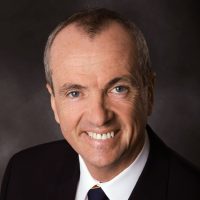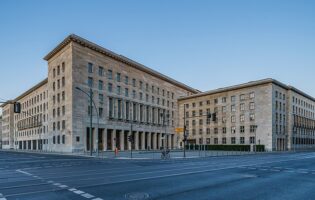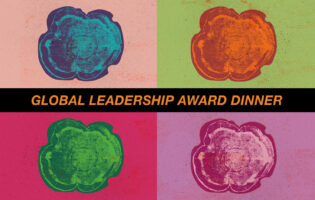2009 and 2014: Reflections
Time flies. I am struck by how recent the events of the twentieth anniversary of the Mauerfall feel. A rainy, but magical, memory.
At first blush, 2009 seems a more innocent, more optimistic time than the more dangerous and uncertain environment of 2014. While the various conflicts in the broader Middle East contribute to our feeling of unease, it is the Russia prism which captures our shifting sense of comfort as we celebrate one of the great achievements in modern history.
Mikhail Gorbachev, the architect of Glasnost and the partner of Helmut Kohl and George H. W. Bush, was in Berlin often five years ago. Rightfully, we saluted him as a hero. Today, Russia is personified by Vladimir Putin. How can we not despair?
No so fast. Let us take stock of some different, powerful realities:
- Putin’s Russia is in crisis: it possesses a one-trick, never modernized or diversified economy and is suffering from a demographic crisis of enormous scale. “Realpolitik” diplomatic and economic responses by the West will ultimately prove effective.
- The responses of late by Germany, led by Chancellor Merkel, have been clear, unambiguous, and forceful. Germany has acted against its immediate self-interests and, instead, pursued its long-term, enlightened interests. Putin has inadvertently handed Germany a gift, a leadership opportunity on the global stage.
- 2009. 2014. Beyond. The German-American relationship, through ups and downs, is indispensable and as close and consequential a bond as exists between any two nations in the world. Konrad Adenauer. John Kennedy. Helmut Schmidt. Ronald Reagan. Helmut Kohl. George H. W. Bush. Angela Merkel. Barack Obama. The political parties don’t hold relevance. The main actors evolve and change. German and American leaders understand and fit into the long, wonderful arc of our unique relationship.
- Finally, how remarkable is it—and, yet, even more importantly, how natural it feels—that Germany’s government and state are led with distinction by citizens of the former East? Angela Merkel and Joachim Gauck live the dream for all Germans—and Americans, as friends and admirers—that was so courageously born in peaceful protest on the streets of the former East 25 years ago.
So, let us celebrate, even in the midst of uncertainty and anxiety. Let us honor and never forget the courage of our heroes past. And, let us know, with today’s leaders, that we can marshall the same strengths as before and together write new chapters in our collective history.
Philip D. Murphy was the U.S. Ambassador to the Federal Republic of Germany from 2009 to 2013.









